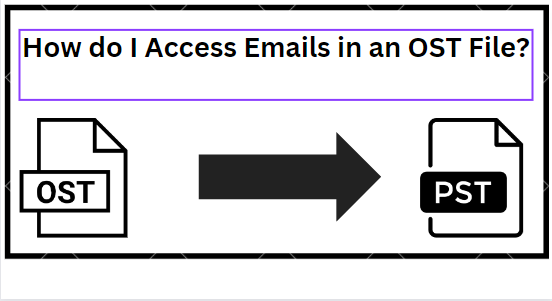Launching SEO for Your New Website: A Comprehensive Beginner’s Guide
Have you just built your new website? That’s great. But BEWARE. Stopping there is a grave mistake. Why? Do you know a new website is built every 3 seconds? That’s insanely fast, and you don’t want to go unnoticed...

Have you just built your new website? That’s great. But BEWARE. Stopping there is a grave mistake. Why?
Do you know a new website is built every 3 seconds? That’s insanely fast, and you don’t want to go unnoticed like many of them.
If you still think starting a website is enough to spike up its readership or get people to buy what you sell just like that, you’ve been seriously misled.
To outdo the aggressive competition and break out of the cocoon, you need to go the extra mile and that is SEO.
Channelized SEO efforts can give your website the initial push to grow and establish a strong digital presence. But where do you begin?
Here I am to guide you to successfully roll out an SEO campaign for your new website to achieve greater online visibility and higher rankings.
SEO Basics for New Website Owners

Your new website needs the primary spur to mark its online presence. Only when your website appears on Search Engine Result Pages (SERPs), your target audience will find your business online.
Optimizing your new website for search engines like Google is pretty important to gear up the probability of your web pages appearing for relevant searches.
That’s why learning some SEO basics can be advantageous for new website owners like you.
Here’s a look at the key components of SEO.
On-Page SEO- On-page SEO involves optimizing the content, headings, meta tags, images and other elements of your website using the right keywords to improve its relevance for specific user searches.Off-Page SEO: Off-page SEO focuses on building external backlinks, strengthening social signals, investing in branding campaigns and other activities outside your website to boost its online discoverability.Technical SEO: Technical SEO takes care of the technical aspects of your website, such as implementing structured data, increasing site speed and mobile friendliness to improve its architecture, performance and readiness for user interactions.Going forward, understanding these major SEO components will come in handy to streamline your SEO efforts to attract organic traffic.
With the right SEO strategies, you can turn the traffic to your website into qualified leads and move them down your sales funnel to ultimately translate them into your customers.
Initial Steps to Start an SEO Campaign
Now you know the SEO basics. But how exactly do you start the SEO campaign for your new website? Here you go.
Website Audit
Start by auditing your website to identify areas for improvement. You can use tools like Google Search Console, Ahrefs and Semrush to run a site audit.
Once the audit is done, you will get insights into what you need to fix to bolster your site’s SEO. Potential outputs of site audit includes identifying duplicate content, finding out and fixing broken links, shortlisting indexability issues, checking for mobile friendliness, knowing your Core Web Vitals score and much more.
This way, a website audit gives you a concrete idea about what you should focus on before launching an SEO campaign for your website.
Understanding Your Audience
Narrowing down your target audience contributes to your SEO success significantly. How?
When you sell a product or service on your website, your SEO campaign should be crafted in such a way that it reaches and resonates with people who are interested in it.
Think of it this way. Let’s say your company builds and sells fleet management apps. In that case, you should use your SEO campaign to pitch your product to fleet managers, trucking companies, shipping agencies and delivery service providers.
On the contrary, if you take it to a translation service provider or other companies that don’t need your services, you might end up with nothing.
That’s why it is essential to understand your audience and their pain points and demographics when starting an SEO campaign.
Keyword Research
Identifying the keywords or search terms your target audiences use to find sites like yours is super important to improve the frequency of your site’s search appearance for relevant searches.
Leverage trusted keyword research tools like Google Trends, Google Keyword Planner and Ahrefs to identify industry-specific keywords.
Shortlist keywords with a decent search volume to include in your content. Also, have an eye for the search intent of the keyword and craft your content in such a way that it matches the intent effortlessly.
As a new entrant, you may have problems ranking higher for well-performing keywords in your industry, as leading players will already be occupying top positions.
In that case, you can start with long-tail keywords for traffic and lead generation. But why?
Long-tail keywords are more specific than seed keywords. That means the competition will be comparatively low.
Wait. Don’t underrate long-tail keywords just yet.
Despite low competition, long-tail keywords can boost conversions incredibly, especially as they are specific to certain user queries.
I mean, what is the point in trying to rank for 100 short-tail keywords that don’t bring any conversions when you can target 10 long-tail keywords that can fetch profitable conversions?
That’s how useful long-tail keywords can be for new website owners like you.
Integrating SEO with Existing Marketing Strategies
Search engine optimization isn’t a standalone technique. You can unleash the full potential of SEO for your website when you integrate it with other existing marketing strategies, including PPC, social media and email campaigns.
So, how do you ensure your SEO goals align with your overall marketing strategy?
Leverage Content Marketing
Content marketing involves creating user-engaging content and promoting it across platforms for a wider reach and increased user engagement.
Create different forms of content, including blog posts, infographics, case studies and more and market it across multiple platforms.
When you do so, make sure that you use your content marketing efforts to boost both SEO and brand awareness alike.
Enhance PPC Campaigns With SEO Insights
Use the insights you gain from SEO to refine your PPC campaigns.
For example, keywords that perform well in organic search can also bring quantifiable results in paid search campaigns.
Shortlisting and bidding on keywords that showcase significant organic performance can boost online visibility and ranking for your new website.
Use Social media for SEO and Vice Versa
If your SEO and social media strategies can go hand in hand, together, they can bring better benefits to your website.
Leverage social media platforms to boost your SEO efforts and vice-versa.
Create a social media calendar and post your SEO-focused content on your social media handles regularly.
On the other hand, try to include links to your social profiles in appropriate places of your SEO content. Adding social profile links at the end of your blog posts is one example.
This approach ensures that your SEO and social media marketing efforts sail in the same boat.
Choosing Between an In-House SEO Team and an SEO Agency

Let’s face the truth. Sometimes, SEO can be a never-ending maze, especially for first-timers. There’s nothing to worry about if you reach that point because you aren’t the only one. Given the complexity involved in doing SEO, even experienced webmasters hit such a dead end at times.
If you think you need help, you can use the field expertise of SEO professionals to your advantage.
But here’s the catch. Do you build an in-house SEO team or hire an SEO agency?
Let me list out the benefits of the two to help you weigh your options and make an informed decision.
Benefits of An In-house SEO Team
Let’s start with in-house SEO.
Dedicated Resources Familiar With Your Brand
When you build an in-house SEO team, you will have access to trained SEO professionals who are familiar with your brand, your company values and culture.
Greater Control Over Strategies and Implementation
As the in-house SEO team is part of your organization, you can extend more control over the SEO strategies the team builds for you and how they can be implemented compared to third-party SEO service providers.
Potential for Deeper Integration With Ongoing Projects
In-house SEO professionals will have a considerable understanding of your clients and ongoing by default. This can make way for a seamless SEO integration with your products or services and facilitate immediate communication with the SEO team whenever required.
Benefits of Hiring an SEO Agency
Now, let’s get to the brighter side of hiring an SEO agency.
Access to a Broader Range of Skills and Experiences
Sometimes, budget constraints can stop you from recruiting more experienced and skilled resources for in-house SEO. Choosing to hire an SEO agency can help you break that barrier.
Dedicated SEO agencies comprise top-tier field experts. The good news is when hiring an agency partner, you pay for the service package you opt for and not the level of expertise at work.
That means you get seasoned experts to work on your SEO project without exceeding your budget.
At Stan Ventures, we offer our clients access to such top-tier SEO expertise at affordable prices. We ensure every client gets quality beyond pricing.
Want to know more about our services and pricing structure? Book a free consultation call now.
Scalability and Flexibility in Handling Fluctuating Workloads
Unlike an in-house team that requires more resources and money to scale up, SEO agencies can scale according to your requirements, especially as they have access to a vast pool of SEO specialists.
With 200+ SEO experts and 100+ native content writers, Stan Ventures can effortlessly align with your altering SEO needs and make on-time delivery.
More Cost-Effective for Small to Medium-Sized Businesses
Building an in-house SEO team requires allocating a significant budget. This may burn a hole in the pocket, especially for small and medium-sized businesses.
That said, SEO outsourcing is a good choice for such businesses. Make sure you opt for a trusted agency partner like Stan Ventures to achieve optimal SEO results.
With over a decade of industry presence, we have helped 2500+ businesses and 65+ agencies across the globe to achieve SEO goals for their organizations and clients.
When it is time to choose between in-house SEO and partnering with an SEO agency, consider factors like your SEO budget, business size and whether your SEO needs are long-term or short-term.
Then, weigh the advantages the two can bring and opt for the one that’s more beneficial for your business.
On-Page Optimization Strategies
Alright. Now let’s get to the strategies part of it. On-Page SEO is the first in the list.
Create SEO-Optimized Content
Focus on creating content that is optimized for search engines and users alike. Choose your keywords carefully and include them in your content naturally.
Google places more emphasis on people-first content. So, make sure your content is engaging and delivers value to your visitors.
When used effectively, user-centric content can come in handy to boost conversions, increase sales and improve your business ROI.
Optimize On-Page Elements
Next, optimize your meta tags, including titles and descriptions, headings, images and URLs, using appropriate target keywords.
When users see their search terms included in your content appearing in SERPs, they are more likely to click on the result and visit your page.
This will improve your click-through rate and make way for more conversions.
Build Internal Links
Linking relevant pages within your website will demonstrate your subject matter expertise to Google. This will, in turn, complement your E-E-A-T scores and boost your authority.
Plus, internal link building enhances your site structure and offers users seamless navigation to related resources within your website. This can increase their dwell time on your website and send positive user experience signals to Google.
All these, put together, can fetch higher search rankings for your site.
Off-Page Optimization Techniques
Off-page SEO is the next in the row.
Build High-Quality Backlinks
Backlinks from other sites can vouch for your credibility and boost your rankings. But remember, not every backlink is a valuable addition to your link profile.
While high-quality backlinks from authoritative sites are good for SEO, low-quality links from spammy websites can harm your rankings.
Narrow down authoritative sites in your niche and earn contextual link placements coupled with high-quality content.
Leverage Social Media Platforms
As I mentioned earlier, SEO and social media can work wonders for your website if you can achieve a striking balance between the two.
Use your social media handles to promote your SEO campaigns to get more user engagement and social signals, including likes, shares and comments.
Invest in Guest Blogging and Industry Partnerships
Making high-quality content contributions to guest blogs and developing brand partnerships with other players in your industry are two other effective ways to acquire backlinks.
Again, when you get those backlinks, make sure they are contextually placed. Such links are of high quality and have the potential to drive qualified referral traffic to your website.
Technical SEO Essentials
Last but not least, let’s discuss technical SEO strategies.
Focus on Mobile SEO
With Google putting mobile-first indexing center stage, it is more than important to optimize your website for mobile SEO.
If your site isn’t mobile optimized, you will not only lose visitors who are accessing your website from mobile devices but also make way for Google to prioritize ranking similar sites with a mobile version over yours.
Improve Page Speed
Alert: The slower your page loads, the more likely it is that you will lose your visitors.
Analyze your page speed using a tool like Google PageSpeed Insights. This will generate the Core Web Vitals score based on your current page loading speed.
Scrutinize areas that need improvement and fix them to improve your page loading speed so that your web page gets ready for user interaction faster.
Eliminate Crawlability and Indexability Issues
Google should crawl and index your site for it to appear in search results. Use the URL Inspection Tool in Google Search Console to check the indexability status of your web pages.
If a particular page isn’t indexed, implement the fixes recommended by the Search Console and then submit it to Google for indexing.
To request indexing for multiple pages, create an XML sitemap and submit it through the Google Search Console.
Monitoring and Adjusting Your SEO Strategy
Once you start an SEO campaign, it is necessary to measure performance from time to time. Check the metrics of your target page, including traffic, click-through rate, impressions, conversion rate and rankings to determine the result of your SEO campaign.
You can use Google Analytics, Ahrefs or Semrush to measure performance.
It’s good if you see the metrics visibly spiking up. If not, you may have to tweak your strategy to beat the odds and drive better results.
Common SEO Mistakes to Avoid
Okay. Till now I explained what to do to accelerate your website’s SEO. Now, let me tell me what to avoid to keep your SEO going just right.
Avoid Over-Optimization
SEO is good. But if you overdo it, it may turn toxic and start eating up your site.
Keyword stuffing is a good example of over-optimization. While adding keywords to your content can improve your site’s visibility, stuffing them in your content, even if done intentionally, can trigger a negative SEO effect.
Keyword stuffing can degrade the quality of your content and take away the value it has to offer to users. Make sure you don’t fall prey to it.
Ignoring Mobile Users
As I said earlier, when ranking, Google doesn’t prioritize sites that are not mobile friendly.
If your site lacks mobile friendliness, it is a negative user experience signal that leads Google into thinking that you are ignoring the comfort of your users.
Develop a mobile friendly website to impress Google and users by offering a seamless browsing experience on mobile gadgets.
Neglecting Google Essentials
Google has a set of guidelines in place for webmasters to follow and calls it Google Search Essentials. This includes creating helpful content, building high-quality backlinks and so much more.
Google hates it when you violate its guidelines. In such a case, Google will punish you with manual actions or penalties based on the intensity of guideline violation in question.
So, make sure that you have a keen eye for Google’s Guidelines and adhere to them at all times.
Every new website requires SEO to showcase its digital presence and take part in the search engine ranking race. Your SEO success depends on your SEO campaign’s potential to drive results.
Consider implementing the on-page, off-page and technical SEO recommendations I have made above to run an effective SEO campaign for your new website.
Also, remember that SEO is an ongoing process and make sure you tweak your SEO strategy as the situation warrants.
Need help doing SEO for your website? Contact us at Stan Ventures today.

 Koichiko
Koichiko 































